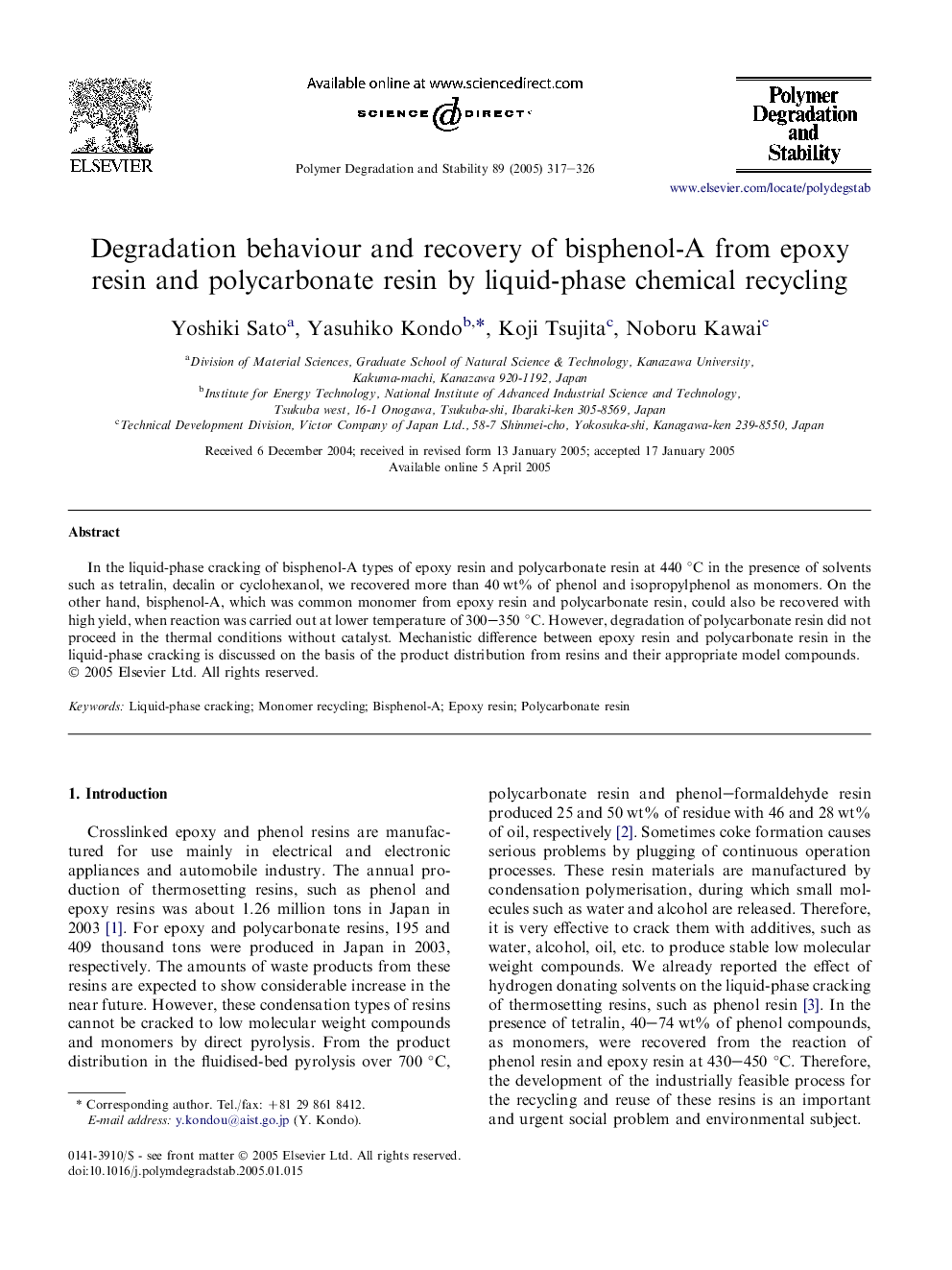| Article ID | Journal | Published Year | Pages | File Type |
|---|---|---|---|---|
| 9560582 | Polymer Degradation and Stability | 2005 | 10 Pages |
Abstract
In the liquid-phase cracking of bisphenol-A types of epoxy resin and polycarbonate resin at 440 °C in the presence of solvents such as tetralin, decalin or cyclohexanol, we recovered more than 40 wt% of phenol and isopropylphenol as monomers. On the other hand, bisphenol-A, which was common monomer from epoxy resin and polycarbonate resin, could also be recovered with high yield, when reaction was carried out at lower temperature of 300-350 °C. However, degradation of polycarbonate resin did not proceed in the thermal conditions without catalyst. Mechanistic difference between epoxy resin and polycarbonate resin in the liquid-phase cracking is discussed on the basis of the product distribution from resins and their appropriate model compounds.
Related Topics
Physical Sciences and Engineering
Chemistry
Organic Chemistry
Authors
Yoshiki Sato, Yasuhiko Kondo, Koji Tsujita, Noboru Kawai,
